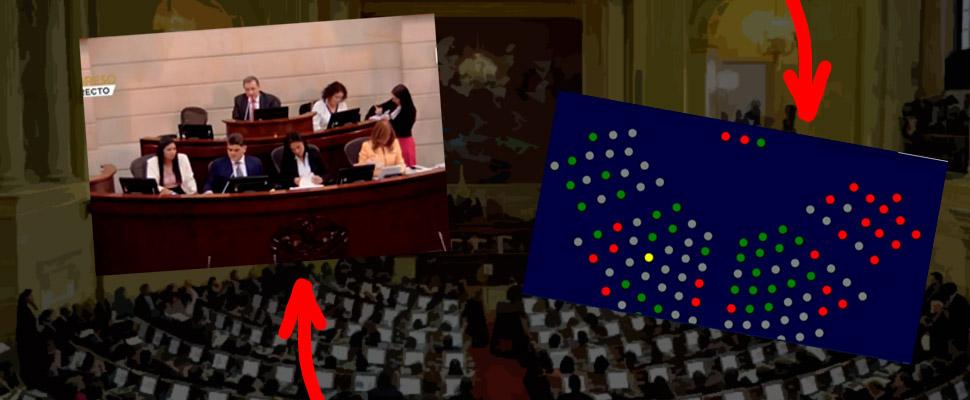Colombia: What about JEP?
Listen this article
The objections of the JEP had to be voted on Monday, April 29 in the Senate, but personal and partisan interests were found to prevent it

It seems that the congressmen, not all but many, forget that their duty is to the Colombians, not to their political party. And, as for several months, the main affected is the peace agreement, in this case the JEP (Special Justice for Peace).
Two days were necessary for the Senate to begin to agree on which senators were or were not prevented from voting. To get to the same point as always, nothing. No agreement, no progress. It seemed more like a mockery to the Colombians, to whom we want that, regardless of the political tinge, the Statutory Law of the JEP enters into force so that this country can see some reparation and the victims have a little more prominence in this agreement than, after all, it's because of them.
That a senator is impeded, that others were challenged. Vote to be prevented, go to the ethics committee. Meanwhile, the JEP is still waiting for results, Colombia is still waiting for results.
It is also surprising that those who have declared themselves disabled on other occasions for any reason, assuring that they have some degree of consanguinity or anything else with someone hosted by the JEP, now come to say otherwise, when they realized that now, each voting is indispensable.
Read also: The objections against JEP were rejected
All the dilatations end up being orchestrated in its majority by a side of the country that wants to look for their interests to prevail. Because when it suits them, they have to vote now, but when they do not, all end up declaring themselves disabled.
As senator Guillermo García Realpe, of the Liberal Party at a time of the plenary on Monday, 29, said after an extensive debate about whether Iván Cepeda should vote or not: "Let's decide! Stop the obstacles (…). We are becoming irresponsible with the country. Government and Congress are not addressing Colombia's problems." They worry more if their party will win in the voting, than if Colombia wins.
While the plenary turns into a battle of egos, thousands of social leaders gather in another part of the capital seeking to be heard so that the killings stop. Meanwhile the victims must wait, regardless of a post-conflict that they should be the center of.
Once again, Colombia, represented by its Congress, shows that it is nourished by polarization. A vote that should put aside personal ideas and be based on what the country and the victims need, has become "one of the most polarized and contaminated debates" that has been seen in Congress, according to what Senator Efraín José Cepeda said. And in the end, where is the JEP?
LatinAmerican Post | Juliana Suárez
Translated from "¿Y la JEP qué?"





